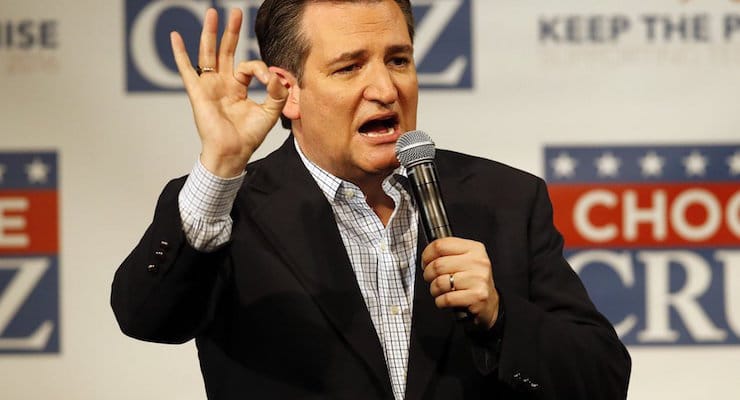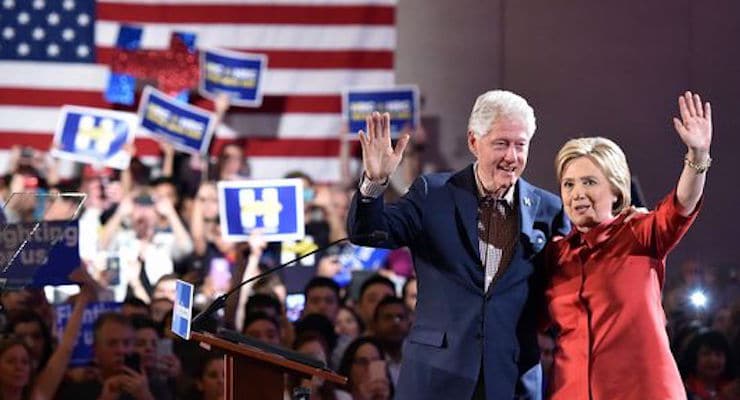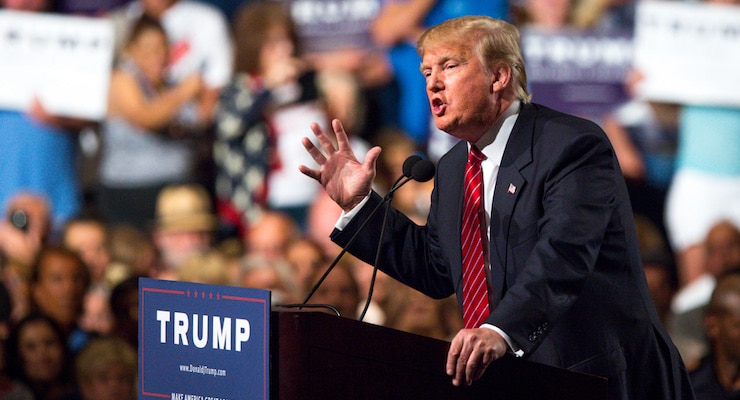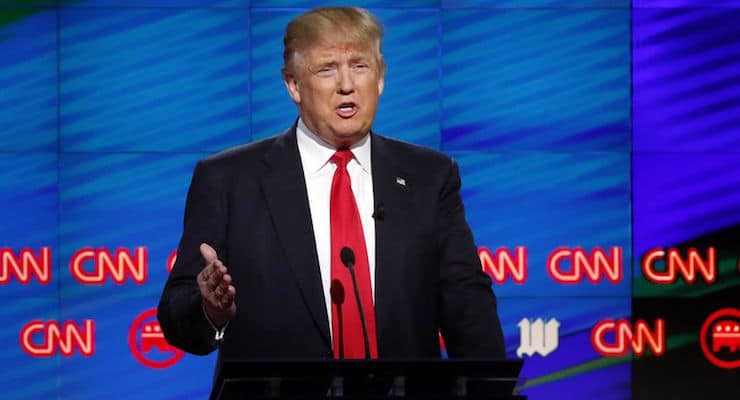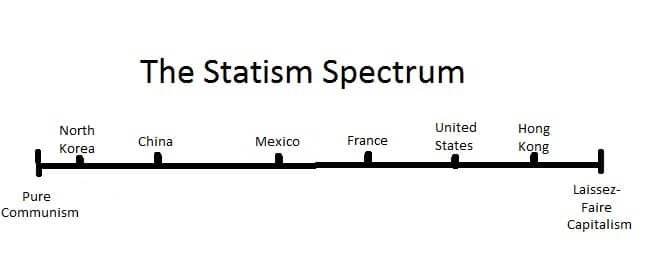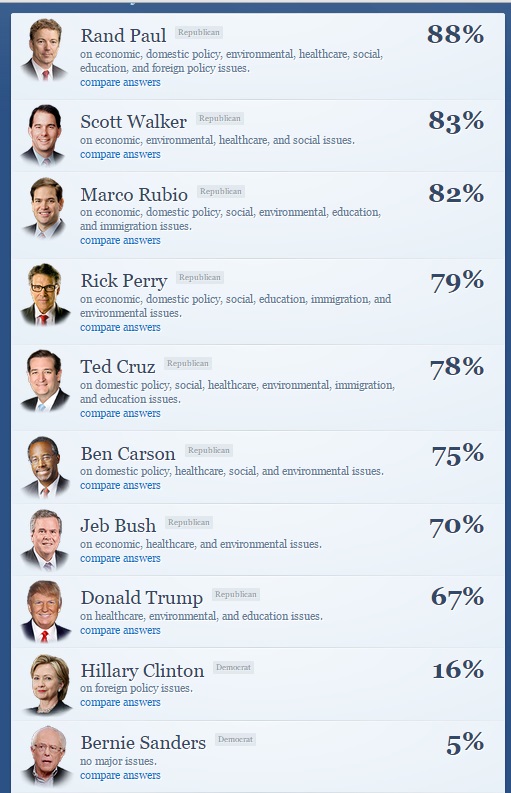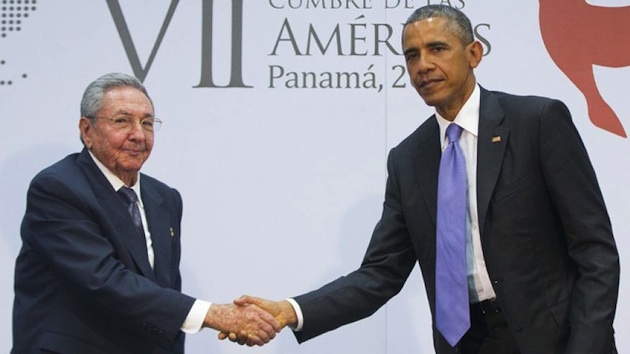National Mortgage Risk Index Increased for 26th Straight Month

Mortgage lenders and real estate agents flood the housing market. (Phone: Peter Macdiarmid/Getty Images)
The National Mortgage Risk Index (NMRI) for Agency purchase loans stood at 12.3% in February, marking the 26th consecutive month housing market risk increased. The gauge, which is conducted by the American Enterprise Institute’s (AEI’s) International Center on Housing Risk, measures how government-guaranteed loans with a first payment date in a given month would perform if subjected to the same stress as in the financial crisis that began in 2007.
An NMRI reading of 10%, for instance, for a given set of loans indicates that 10% of those loans would be expected to default in a severe stress event, based on the actual performance of comparable loans following the 2008 financial crisis. The NMRI is published monthly utilizing a nearly complete census of loan-level data for loans guaranteed by Fannie Mae, Freddie Mac, FHA, VA, and Rural Housing.
“On a year-over-year basis, the monthly purchase loan National Mortgage Risk Index increased for the 26th straight month in February, fueled by a continuation of high risk lending to first-time buyers,” said Edward Pinto, co-director of the International Center on Housing Risk.
Mr. Pinto, a former executive vice president and chief credit officer for Fannie Mae, also said the “current housing market, particularly at the entry level, is exhibiting strong, leverage-fueled demand, which in combination with shortness of supply, will continue to drive home prices up faster than incomes and inflation.”
The NMRI now covers 18.6 million Agency loans dating back to November 2012, representing slightly more than 8.5 million Agency purchase loans and 10 million Agency refinance loans. The NMRI is published for purchase loans (with separate indices for first-time and repeat buyers), refinance loans (with separate indices for no-cash-out and cash-out refinance loans), and the composite of purchase and refinance loans.
The increased risk is fueled by the continued migration of Agency purchase loan originations from large banks to non-banks. The shift in market share has accounted for much of the upward trend in the NMRI, as nonbank lending is substantially riskier than the large bank business it replaces.
“The typical first-time buyer these days has a relatively low credit score and puts little money down,” said Stephen Oliner, co-director of the International Center on Housing Risk and senior fellow at UCLA’s Ziman Center for Real Estate. “These facts make clear that mortgage credit isn’t tight.”
The riskiness of Agency refinance mortgages also increased over the past year. The NMRI for these loans stood at 11.4% in February, up 10.6% from a year earlier. These figures exclude VA refinance loans, which are not yet risk rated.
The report released by the Commerce Department comes after data on Monday from the National association of Realtors showed existing home sales crated 7.1% in February, which some economists blamed on tight inventories and difficulties adjusting the data during the month with a leap day. They also blamed February’s weak sales on a drop in contract signings in January because of snow storms.
Other notable takeaways from the February NMRI include the following (H/T AEI):
• As expected, purchase loan volume rebounded in February, driven by looser lending standards and an improving job market. Volume in February was up 9% from a year earlier, paced by a 12% rise for FTBs.
• First-time buyers have been the focus of the easing in credit standards for Agency purchase loans. The first-time buyer NMRI stood at 15.7% in February, up 0.7 percentage point from a year earlier, and well above Repeat Primary Homebuyer NMRI of 9.0%.
• The cut in FHA’s annual insurance premium early last year raised its purchase-loan market share to 28% in February from 23% in March 2015. This increase has come almost entirely at the expense of Fannie Mae and the Rural Housing Service.
• The seismic shift in market share from large banks to nonbanks continued in February, boosting overall risk as nonbank MRI is much higher. For the composite of all Agency purchase loans, the large bank share fell below 25% in February, down from about 60% in November 2012.
• Fueled by solid job gains, low mortgage rates, and high and growing leverage, the national seller’s market is now in its 42nd month. As a result, real home prices are up 15% percent since the 2012:Q2 trough, far outstripping real income growth and crimping affordability.
The National Mortgage Risk Index (NMRI) for

